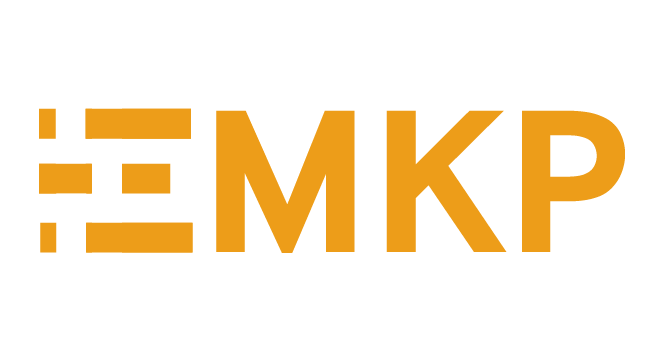We are very excited to announce that 20 new EMKP projects have been approved for the year 2022!
As in previous years, competition was very high, with many outstanding applications from across the globe. We want to express our warmest congratulations to the successful grantees, three of whom are receiving large grants for two years of research, while seventeen receive small grants for one year of research.
This means that there are now 68 EMKP grantees working across 44 countries. This year, grants have been offered for work in 18 different countries, including, for the first time, Tanzania, Iraq, Moldova, Mexico, Pakistan, Ukraine, and China.
The diverse range of material knowledge practices covered by these projects includes, among others, pottery-making in south-western Ukraine, the management of Brazil-nut orchards in Brazil, sign-painting in Vietnam, marine dye harvesting in Mexico, boat-building in India, umbrella-making in southern China, and weaving in the Peruvian Amazonia.
As the world continues to grapple with war, climate change, disease, and inequality, it has been heartening to see so many EMKP applicants and grantees responding to the urgent need to safeguard material culture and knowledge in ways that prioritise collaboration, communication, and mutual respect between all parties involved. As always, it is our hope that these projects will not only help preserve the material heritage of these communities for generations to come, but contribute to the creation of a more equitable and sustainable future through community collaboration and the democratisation of knowledge.
The EMKP Team would like to extend our sincerest thanks to everyone who responded to our call for applications, and once again congratulate the successful teams and their projects! We can’t wait to work with the new cohort, and support them on their EMKP journey.
The list of successful projects can be seen below:
LARGE GRANTS
Rediscovering Linangkit: The Traditional Hand Needleweaving of Women from Sabah, Malaysia
PI: Yunci Cai
Collaborators: Judeth John-Baptist, Patricia Regis, Jacquelin Pugh-Kitingan
Recording south-western Ukrainian pottery: disappearing skills, knowledge and vessels
PI: Michela Spataro
Collaborators: Romana Motyl, Vyacheslav Kushnir, Nadiya Borenko
Documenting endangered knowledge of making Chitrali shu (handwoven woollen cloth) in Chitral, Northwest Pakistan
PI: Adil Iqbal
Collaborators: Mansura Shams, Feroza Gulzar
SMALL GRANTS
Documenting the Last Known Felt-maker Using Ancient Technique in a Land Where Sheep were First Domesticated
PI: Renas Hassan Babakir
Collaborators: Yad Deen, Shirwan Can
Earth under transformation, the endangered material knowledge from the Oleiras do Candel Community of producing ancient Ceramic Pots and maintaining sustainable architectural techniques.
PI: Ana Carolina Brugnera
Collaborators: Lucas Bernalli Fernandes Rocha
Documenting Endangered Traditional Handicrafts: Three-legged Stools (Barcuma) and Coffee Culture in Jimma, Southwest Ethiopia.
PI: Jira Mekonnen Choroke
Collaborators: Bikila Ashenafi, Melkamu Dumessa, Zerihun Kebebew
The chhot-builders of West Bengal, India: Documenting the vanishing craft knowledge of a unique boat-building tradition
PI: John Cooper
Collaborators: Zeeshan Alli Shaikh
Documentation of Endangered Craft Heritage of Raffia Palms of Urhobo People of Nigeria
PI: Godini G. Darah
Collaborators: Ese Odokuma-Aboderin, Akpobome Diffre-Odiete
Dreams of yellow: Documenting the making and performance of Nuosu oil-cloth umbrellas
PI: David Francis
Collaborators: YiLuo Mose, Lisheng Zhang
Marine purple dye: a pigment from Indigenous Mexico
PI: Camilla Fratini
Collaborators: Dzahui Bautista Moreno
Becoming Kacalisian: Documenting the Indigenous Knowledge Systems and Techniques of Slate Houses in Southern Taiwan
PI: Te-Chen Lu
Collaborators: Ljavuras Kadrangian
Colours from the Sea, Fibres from the Land: Warp Ikat Textile Production and Natural Dyeing of the Alurung, Alor Regency, Indonesia
PI: Linda Susan McIntosh
Collaborators: Yulianti Peni, Julius Alelang
Between presence and disappearance of traditional Bulgarian textiles of Stoianovca, Republic of Moldova
PI: Marina Miron
Collaborators: Cheavdari Elena, Ciolcovan (Eropunova) Alexandra
Material culture of traditional fishers on the Rufiji River floodplain, Tanzania
PI: Marie-Annick Moreau
Farming For Crafting: Digitising Organic Material Technology Of The Haya, Tanzania
PI: Nancy Rushohora
Collaborators: Odetha Kamuhabwa, Joshua Kahigi, Frank Mbago
The taste of life: the management of brazil nut orchards, cooking knowledge and traditional biotechnologies of the Tenharin of Amazonia
PI: Karen Gomes Shiratori
Collaborators: Laura Pereira Furquim, Daniel Rocha Cangussu Alves, Daniel Eiziri
Documentation and Digitization of Indigenous Smithing Knowledge in North-eastern Tanzania
PI: Valence Valerian Meriki Silayo
Collaborators: Nicholaus Joseph Kisambuka, Wenceslous M. Mashingo, Irene Gabriel Ndossi
The “real design” knowledge among Huni Kuin weavers from the Peruvian Amazonia.
PI: María Elena del Solar
Collaborators: Enrique Nonato, Daniel Echecopar, Rosa del Aguila
Indigenous women’s hand-spinning wool in the Ecuadorian Highlands.
PI: Lorena Isabel Toro Mayorga
Collaborators: Dayana Mayorga
Documenting the knowledge, skills and practices of the last remaining sign-painters in Ho Chi Minh City
PI: Rachel Tough
Collaborators: Phạm Thanh Thôi
Banner image: Traditional pottery made at Pirizhna (Photo: Vyacheslav Kushnir)
